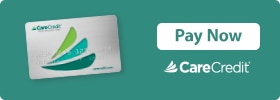Insurance & Payment
Online Bill Pay
Insurance
We provide specialty surgical and medical eye care and don’t want financial hurdles to stand in the way of your vision.
Whether you are considering refractive eye surgery, cataract surgery, dry eye treatments, cosmetic surgery, glaucoma surgery, or medical eye care, we accept a variety of payment methods and financing options to fit your budget. We work with almost all medical insurance plans and will exhaust all options to help you understand and use your insurance benefits. Our goal is cost transparency and access to the highest quality care.

Fees, Billing, and Collection
All non-covered services, deductibles, and co-payments are due at the time of service. We accept cash, check, MasterCard, AMEX, Discover, and Visa. We will be happy to discuss fees in advance and provide an estimate on any service we provide. Give us a call today at (770) 968-8888.
We understand that managing healthcare expenses can be challenging. To assist, we offer payment plan options. For more information on eligibility and how these plans can benefit you, please contact our office today. This includes co-pays, deductibles, refraction fees, and any outstanding balances. Our goal is to help you understand your financial responsibility while reducing surprise bills after your visit.
Frequently Asked Questions (FAQ’s)
We’re committed to clear communication, fair billing, and exceptional care—every step of the way.
Your Healthcare Credit Card
CareCredit is the credit card exclusively designed for healthcare services. CareCredit offers special financing on purchase of $200 or more* for healthcare procedures not commonly covered by insurance, including LASIK and Premium-IOLs. Why put off improving your vision tomorrow, when you can see clearer today?

Pay your post-care balance online with the CareCredit credit card.
We proudly accept the CareCredit credit card to help you finance your healthcare needs. Now you can use Pay My Provider, a new online payment solution from CareCredit, to pay outstanding balances quickly and securely. Special financing options are available.*

*Subject to credit approval. Minimum monthly payments required. Visit www.carecredit.com for details.
